SOUTH PORTLAND — Anna Bulger and her family took a great leap of faith in 2010, when she moved into her new home on E Street in the city’s now trendy Knightville neighborhood.
Bulger was 22 years old at the time and had long dreamed of living in an apartment with friends. Chances of that happening were slim, however, without her parents taking extraordinary steps. Bulger has autism, and suitable government-funded residential programs are scarce in Maine.
Six years later, Bulger and her eight housemates at 20 E St. have proven that their experiment in housing for moderately disabled adults is a success.
So successful that a second condo-like rooming house with support staff – again modeled after a cluster of privately developed projects in the Boston area – is on track to be built next door at 14 E St. with strong community support.
“They’re good neighbors,” said City Councilor Sue Henderson, who lives across the street. “I think the second house is going to be another great asset to the neighborhood.”
The council is set to vote Wednesday on a zoning amendment that would make the project possible. The Planning Board unanimously recommended the change and the council approved it at a first reading two weeks ago.
Bulger’s three-story home is a former Grange hall built in 1894 that was purchased by her parents and the families of other residents. It was developed and is managed by Specialized Housing Inc., a for-profit company based in Brookline, Massachusetts, that oversees 11 similar properties in that state. The home on E Street in South Portland is the company’s only one in Maine.
It’s basically a boarding house that’s set up like a condominium, where each family owns a large bedroom and a share of common space, including a spacious modern kitchen and dining area, and a living room where the housemates hold movie nights. There’s also a laundry room and several bathrooms, each shared by a couple of residents.
Two small apartments on the third floor house two live-in staff members who provide nighttime and emergency coverage in exchange for free rent. A house manager who is a clinical professional oversees house operations on weekdays, including nightly meal preparation, and works under the supervision of a part-time clinical director. Relief staff members cover weekends.
It’s also run like a condominium, with family members acting as association and trust members. Each owner pays individual property taxes and, in most cases, residents are tenants and family members are landlords, so they can write off condo expenses on their annual taxes. Each unit can be sold if a resident leaves for any reason.
BENEFITS OF HOMEOWNERSHIP
Each resident pays a monthly assessment of about $2,100 to cover building maintenance, management, staffing and household expenses, including utilities and food. Most use a combination of Social Security benefits, Section 8 housing vouchers, income from part-time jobs and, if possible, family funds. Many families set up trusts overseen by siblings to ensure residents can live there in perpetuity.
The first house was purchased and financed by the families through local banks, mostly because bigger banks aren’t familiar with this type of housing, said Mary Chris Semrow, Bulger’s mom, who now works for Specialized Housing Inc. Semrow said that in her search for housing alternatives for her daughter, she found Specialized Housing’s model to be unique in the nation.
“The benefit of homeownership is, we’re all in this together,” Semrow said. “We can’t allow this to be a true rental situation because we can’t have that kind of turnover. Stability is key for this to be successful.”
Semrow, 62, said this type of specialized housing is geared toward residents who have limited alternatives to living at home with family members, especially those with aging parents who want to ensure their children have secure housing for a lifetime.
The need for this type of housing is fueled by a lack of state and federal funding for residential programs and support services, Semrow said, noting that her daughter has been on a waiting list for support services for 10 years and it now has nearly 1,400 names on it.
ESSENTIAL HOUSING OPTION
Because Semrow became something of an expert in helping to develop the house at 20 E St., she’s working with families who want to develop the second house at 14 E St. Four families have committed to buying into the project, another family is being reviewed and five others are going through the assessment process.
Three of the families already have purchased the house at 14 E St., Semrow said. It will be renovated into two apartments for staff and an addition will be constructed for 10 residents. Like the first house, it will contain bedrooms and shared common spaces, including a workout room.
The purchase price for each unit of the new project is expected to be between $175,000 and $200,000, Semrow said. She and other representatives of Specialized Housing readily admit this type of housing isn’t affordable for low-income families, but it fills a need for families who have some means and face limited housing alternatives.
“This type of housing is essential for some families,” said Peter Roth, a developer with Specialized Housing whose son lives in one of the Boston-area houses. “The environment is designed to feel like a large, single-family home. They each have a bedroom but they share common spaces and a meal every day. It offers independence to people who need some support in a family-like setting.”
Each resident is screened by professional clinicians to determine whether he or she would be a good fit for this type of shared housing. Residents of 20 E St. are 28 to 62 years old and have a variety of developmental and intellectual disabilities but are considered high-functioning. Many have part-time jobs or volunteer in the community, and most attend day programs for disabled adults.
FRIENDS AND FAMILY
Living on E Street puts Anna Bulger and her housemates in the thick of things, in a walkable, vibrant neighborhood with public transportation, which gives them the independence to pretty much come and go as they please. Community events are held regularly at Mill Creek Park, including concerts, art shows and a weekly farmers market.
Devin Leonard, 28, is a gold-medal-winning Special Olympian who goes snowboarding a couple times each week in the winter with activity groups. James Ostrow, 36, worked at Tim Hortons for several years before it closed recently, so he’s looking for a job. He also enjoys reading the Portland Press Herald every day and spending time with his girlfriend, who lives in Westbrook.
Dylan Cook, 41, has been a part-time prep cook at 158 Picket Street Cafe for five years and plays guitar in a band with other disabled adults. He also helps out in the kitchen, cooking a weekly meal for his housemates in addition to the regular chores they all share.
“I like living with people with similar problems and having support,” Cook said. “I like living near Mill Creek (a commercial area next to Knightville) because you can walk anywhere you want to go. I also like cooking here. I make recipes I find on the internet or on the Food Network.”
Bulger keeps an equally active schedule. She walks to the nearby public library each week to borrow books that she devours. She strolls to the supermarket, hair salon, pharmacy and other stores in Mill Creek and Knightville. She also works part time as a stockroom helper, a job she’s held for eight years, and she reads to residents of a local nursing home.
What’s her favorite thing about living on E Street? Bulger doesn’t hesitate to answer during a tour of her periwinkle-blue bedroom with flowing white drapes. She notes the distant view of Portland Harbor from one of her windows.
“It’s better to live with friends than to live alone,” she said.
Send questions/comments to the editors.

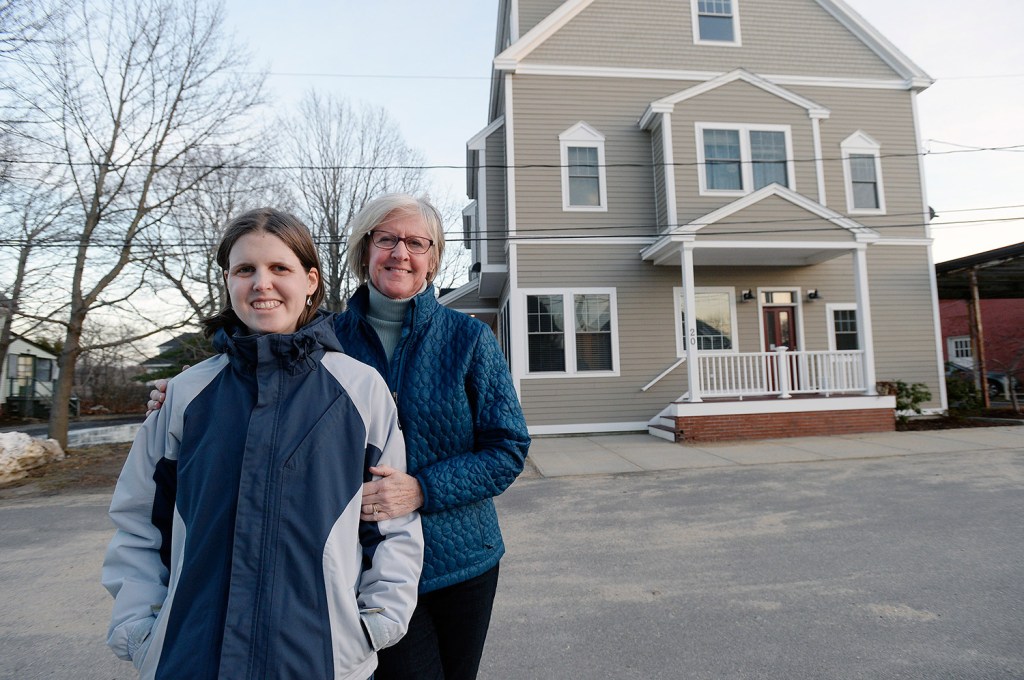
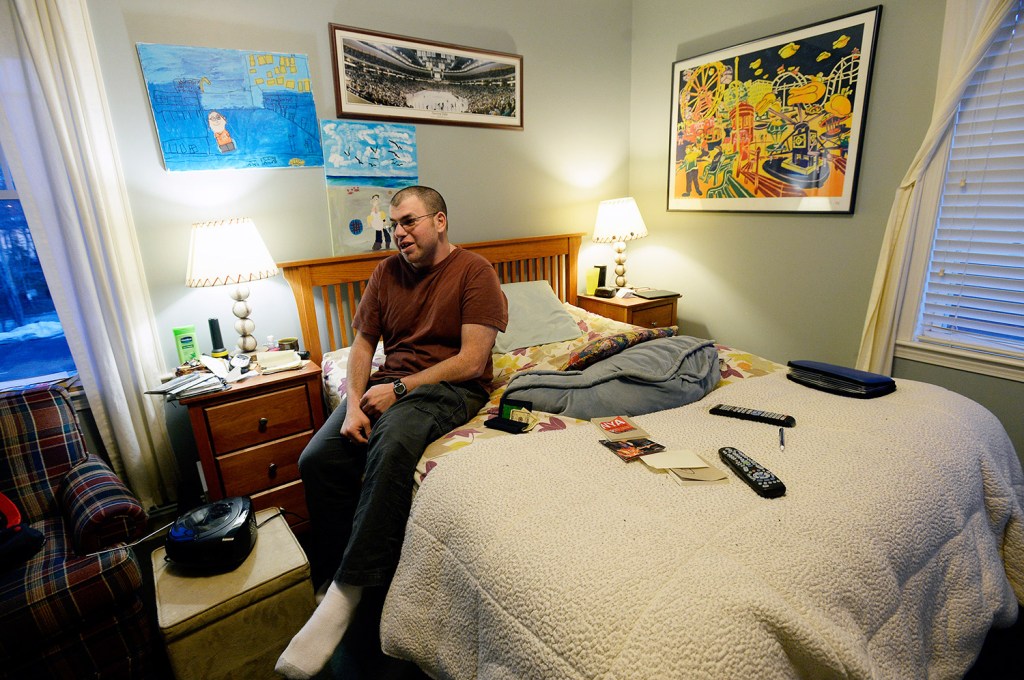
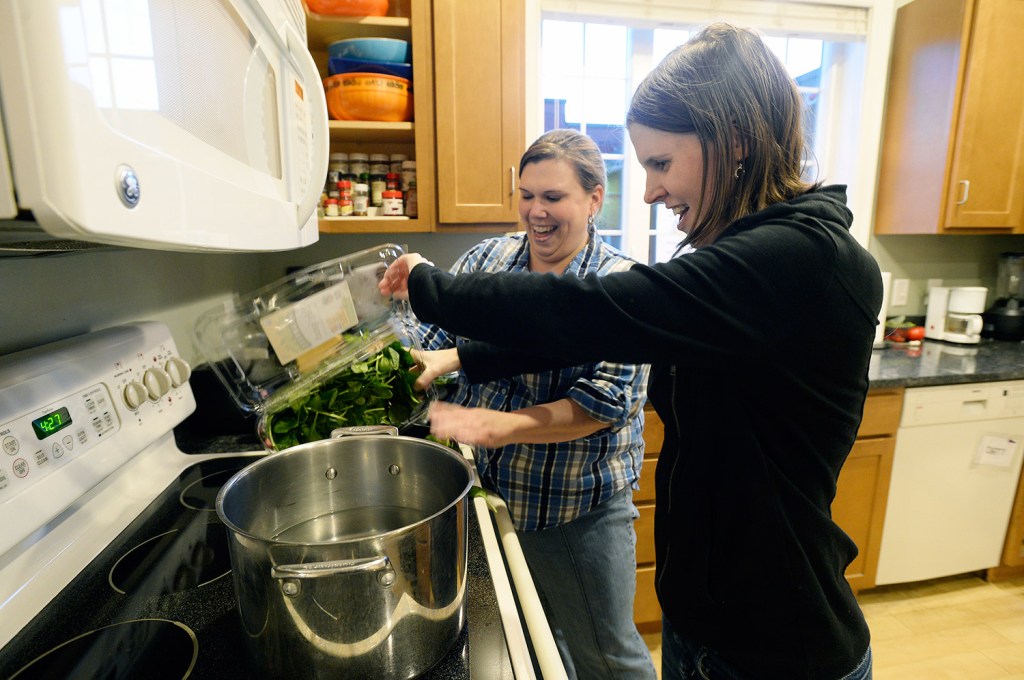
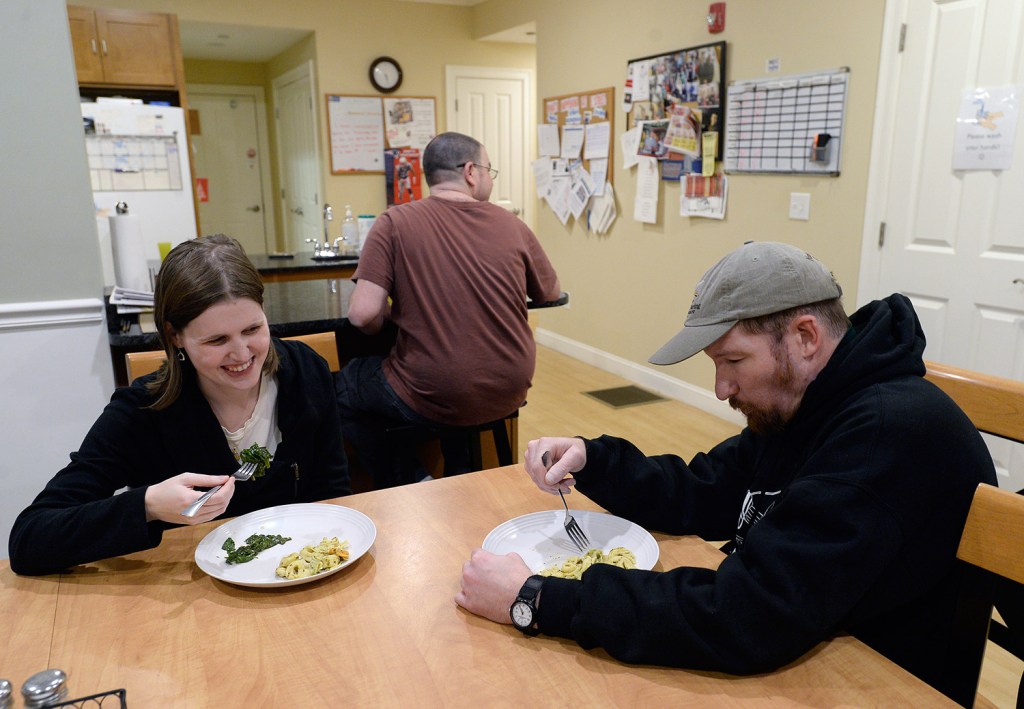
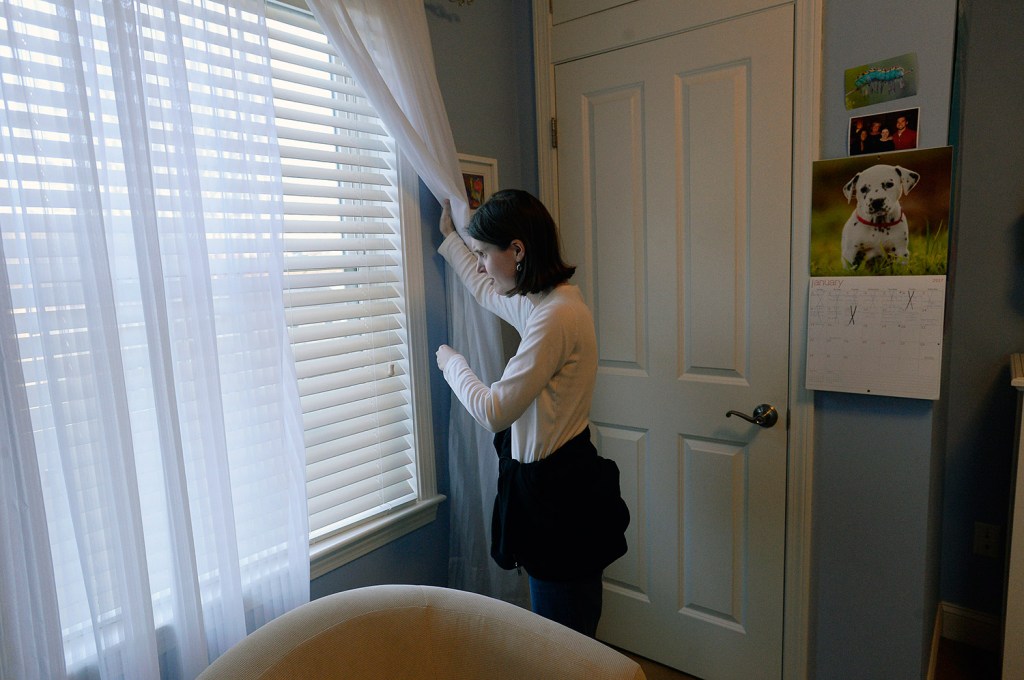
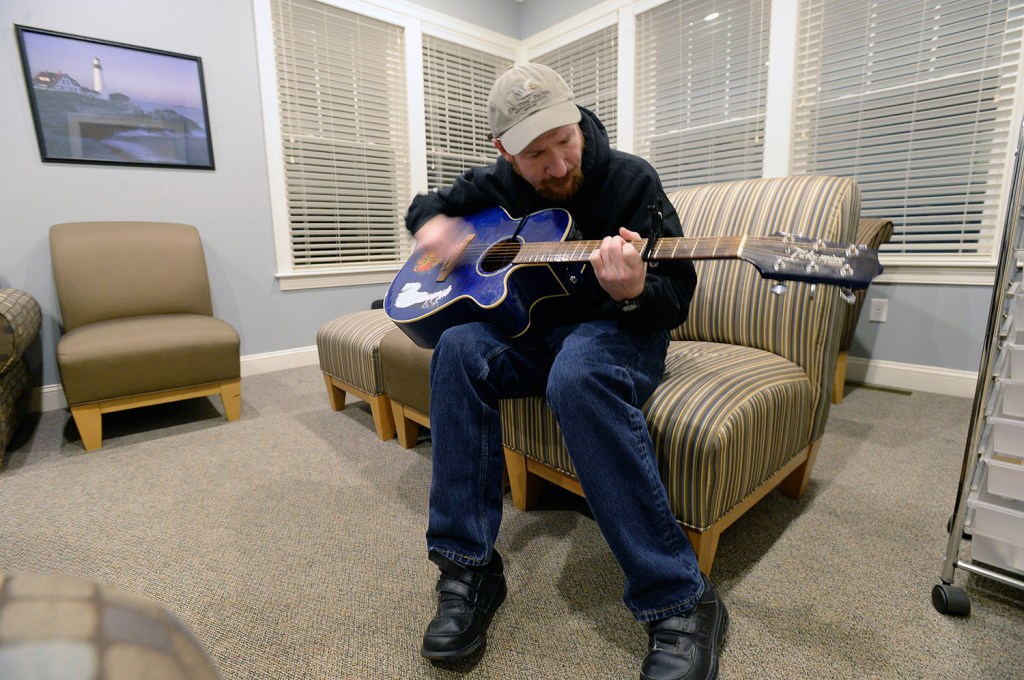

Success. Please wait for the page to reload. If the page does not reload within 5 seconds, please refresh the page.
Enter your email and password to access comments.
Hi, to comment on stories you must . This profile is in addition to your subscription and website login.
Already have a commenting profile? .
Invalid username/password.
Please check your email to confirm and complete your registration.
Only subscribers are eligible to post comments. Please subscribe or login first for digital access. Here’s why.
Use the form below to reset your password. When you've submitted your account email, we will send an email with a reset code.